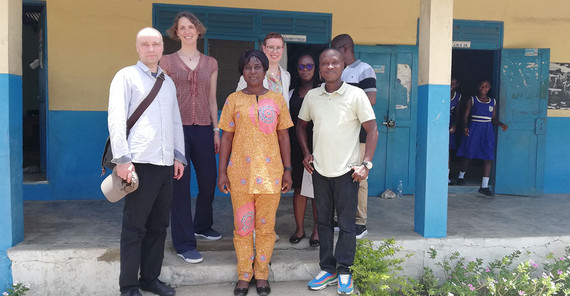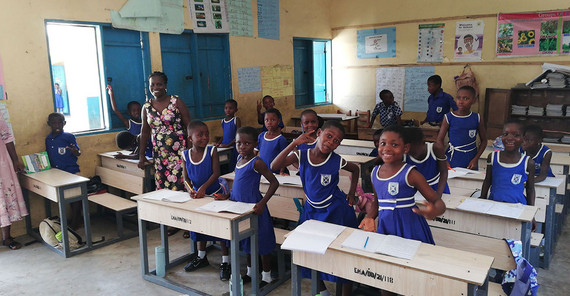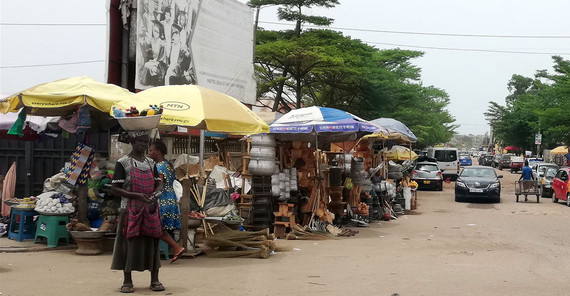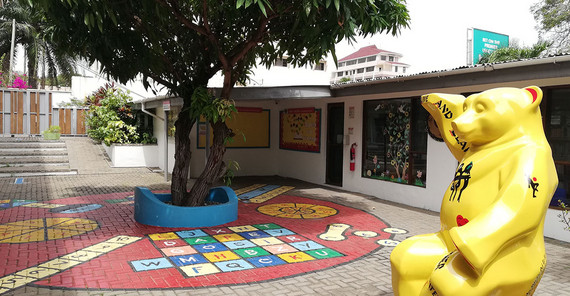"Our host, Dean Prof. Dandy Dampson, welcomed us very warmly and accompanied us throughout our stay," says Winnie-Karen Giera. "We were able to have conversations with the professors in the Faculty of Educational Studies. The Vice Chancellor and the Director of the Centre for International Programmes were also very interested in cooperating with the University of Potsdam," says Giera, who was impressed by the great hospitality and the extensive program at the university in Winneba. "The interaction there is casual, collegial and friendly. There is a wonderful sense of humor everywhere," observed Manuela Hackel. "We were also very impressed by the commitment and great interest shown by teachers, learners and students," added Torsten Andreas.
Winnie-Karen Giera plans to exchange teaching and research on the promotion of literacy skills in adolescents and young adults, including debating, writing, reading, and scenic play. In addition, she would like to cooperate on inclusion and diversity topics in order to share experiences from the ZeLB working group on the "Potsdam Inclusion Didactic Teaching Model" that she leads. In the fall, she will lead a workshop week for UEW students on "Stop Bullying! A Theater Project" and then organize an online discussion with participating student teachers from Potsdam and Winneba. "Ghana is a country that knows and lives diversity. We in Germany could learn a lot from that," says Giera.
Her colleague Torsten Andreas is aiming for cooperation on intercultural topics such as language teaching and music culture, which will start this summer semester. And Manuela Hackel is preparing a student exchange with the Institute for Teacher Education and Continuing Professional Development (ITECPD) in Winneba. In addition, student teachers from Potsdam will be able to complete their "internship in pedagogical-psychological fields of activity" at state schools in Ghana. They will then not only receive a cultural introduction, but will also be paired with student teachers from Ghana in a buddy system in order to learn from each other. The UEW accompanies them during the internship. The large internship semester will be possible in Ghana, namely at the German School in Accra, which the delegation was able to visit.
The UEW’s practical model is twice as extensive as that of teacher training in Potsdam. After observing at schools in the first year of study, peer teaching follows in the second year and independent teaching in the third year. "Comparing study regulations and content could also be interesting, for example in integrating inclusion topics," says Giera. In the future, we will see whether study visits to the UEW are also possible.




